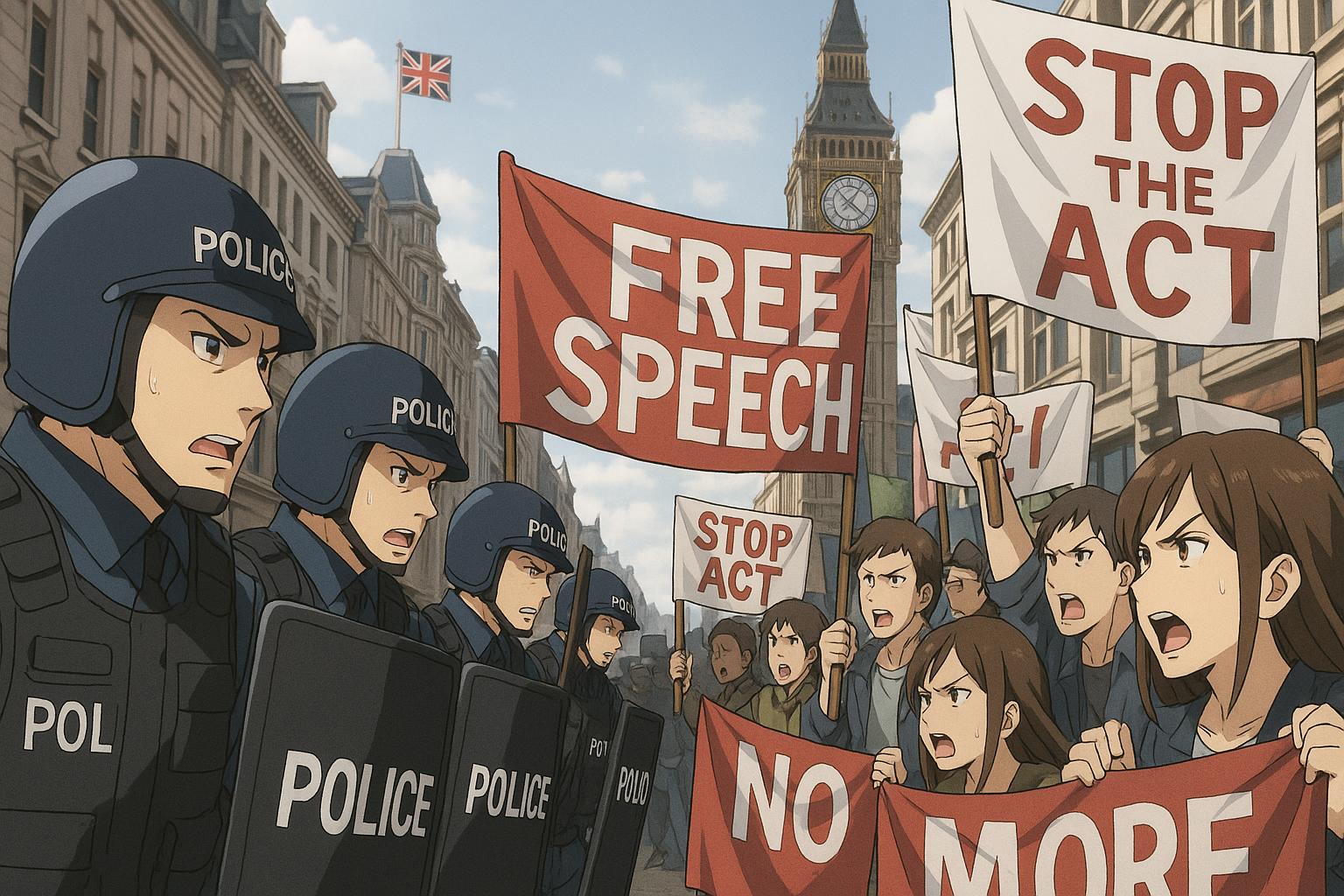The recent pro-Palestine protests in London have ignited significant controversy, particularly following reports of demonstrators allegedly glorifying the October 7 terror attacks by Hamas. This is a sensitive issue, especially as reports emerge of a Metropolitan Police officer dismissing complaints regarding such displays as “almost petty tit for tat.” The officer’s response to a British-Israeli man who reported pro-Palestinian demonstrators singing about the October attacks reflects a troubling perception of the seriousness of public expressions of extremist support during these times.
Footage from the protests reveals alarming statements made by some supporters, including one individual reportedly claiming, “I love October 7” and expressing affection for groups like Hamas and Hezbollah. Such comments raise questions about the boundaries of free speech in relation to endorsing violence and terrorism. Under UK law, support for Hamas, recognised as a terrorist organisation, is illegal, which further complicates the matter when considering the police’s role in enforcing these laws.
Jonathan Hall KC, the UK's independent reviewer of terrorism legislation, has highlighted that speeches at these rallies could glorify terrorism, thereby raising the stakes significantly. Hall underscored that such acts could lead to serious criminal charges and emphasised that law enforcement should have been more proactive in addressing these concerns. Home Secretary Suella Braverman echoed this sentiment, warning that anyone mocking the murder of Jewish individuals risked police action against them, further indicating a heightened sensitivity to these issues in the current climate.
The Metropolitan Police have faced scrutiny not only for their handling of protests but also for the significant financial burden associated with policing these demonstrations. Reports indicate that the cost of managing pro-Palestinian protests has surpassed £53 million, sparking debate over efficient resource allocation. Critics argue that these funds could potentially address other pressing issues in London, such as rising crime rates.
Additionally, the police’s tactics during these protests have drawn criticism from trade unions and human rights organisations. Claims of heavy-handed approaches, including mass detentions known as kettling, have raised concerns regarding the fundamental right to protest and the potential for human rights violations to occur during law enforcement operations.
In light of the complexities surrounding the Israel-Palestine conflict, the Metropolitan Police have had to navigate a challenging landscape of public sentiment and legal expectations. Following incidents where individuals appeared to celebrate Hamas’s actions, police presence has been ramped up across London, signalling a determined stance to maintain order while dealing with the realities of public demonstrations that intersect with deep-seated political and social issues.
As the situation evolves, the debate surrounding freedom of expression, the legal ramifications of glorifying terrorism, and the police's role in managing protests will undoubtedly continue. Many citizens and officials alike are calling for clarity and accountability from both the government and law enforcement to ensure that public safety does not come at the cost of civil liberties.
##Reference Map:
- Paragraph 1 – [1], [3]
- Paragraph 2 – [2], [6]
- Paragraph 3 – [4]
- Paragraph 4 – [5]
- Paragraph 5 – [6], [7]
Source: Noah Wire Services
